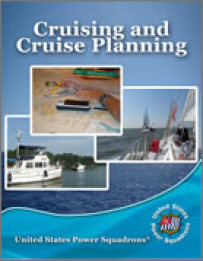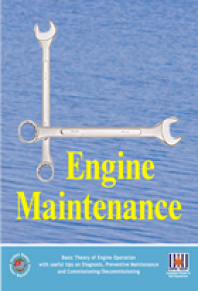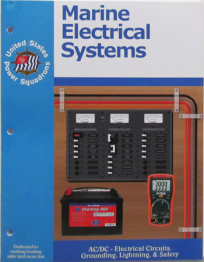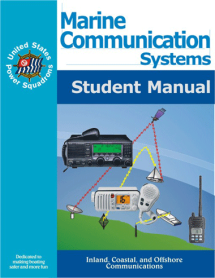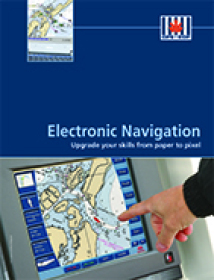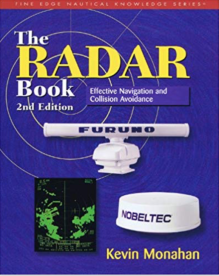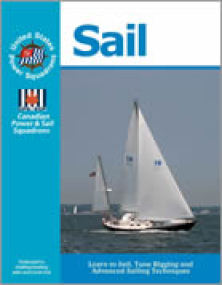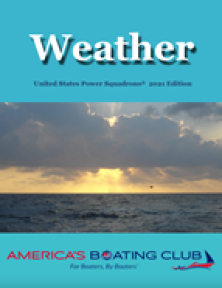Elective Courses
The Cruising and Cruise Planning course focuses on the planning and preparation necessary for safe enjoyable extended cruises on both inland and coastal waters.
Designed for members who cruise on either a sail or powerboat (owned or chartered)
Topics Include:
- Cruise preparation and planning - General
- Boat and Equipment
- Anchors and Anchoring
- Security
- Chartering
- Cruising Outside the United States
- Crew and Provisioning
- Voyage Management
- Communications
- Navigation
- Weather
- Emergencies
Engine Maintenance course stresses the diagnosis of modern systems, while also teaching the basics of engine layout and operation. Gasoline inboards, outboards, and diesel engines are taught in a way that reinforces the common aspects of how engines work.
The Engine Maintenance course also covers basic mechanical systems such as drive systems (propellers), steering systems, and engine controls. The last chapter discusses solutions you might use to problems that could occur while afloat and away from a repair facility.
The Marine Electrical Systems course starts with an explanation of what electricity is, followed by discussions on boat electrical wiring, DC and AC electrical systems, galvanic and stray current corrosion, lightning protection, and ends with troubleshooting of boat electrical problems.
The course includes detailed instructions on how to use a multimeter, how to solder and crimp electrical wiring circuits, and how to read electrical wiring diagrams.
Marine Communication Systems is an in-depth review of those systems available to the recreational boater, or to those with whom he/she shares the water.
Topics Include:
1. Radio History and Communications,
2. The Radio Frequency Spectrum, Chapter
3. VHF Communications
4. Global Maritime Distress and Safety System
5. FCC Rules, Radio Licenses and the Radio
Frequency Plan
6. Radiotelephone Operating Procedures
7. Long-Range Radio Communications
8. Other Marine Communications Systems,
9. Radio Maintenance
Electrronic Navigation introduces GPS technology from the most basic receiver to chart plotter systems for navigation on board. The process of navigating by establishing waypoints and routes, and then running the planned courses, is demonstrated. Further, electronic charting software for the desktop computer is examined, with creation of waypoints and routes on the desktop and subsequent download to the on-board unit.Special attention is paid to apps for tablets and smartphones that provide the electronic navigation function at the helm, for relatively little cost.
Radar for Boaters was developed by Canadian Power and Sail Squadrons. This course is up to date for radar technologies available now and into the near future. The course covers the different types of radar equipment, their capabilities and limitations, as well as their features and how they apply to students’ needs. It covers what you need to know about radar, from how and where to mount the antenna to how to interpret the displays, so you can use your radar for collision avoidance and for navigational purposes.
Sail 2009 is a complete sail course created to serve the needs of the novice and experienced sailor, as well as the non-sailor, for basic skills and knowledge. The course starts with basic sailboat designs and nomenclature, rigging, safety, and sail processes and then tackles the physical aspects of sailing forces and techniques, sail applications, marlinespike, helmsmanship and handling of more difficult sailing conditions, navigation rules, and an introduction to heavy weather sailing.
Weather Course, 2021 edition, is a general weather course which covers the dramatic technological advances that have changed the ways weather forecasts are produced and disseminated. This course not only deals with modern weather forecasting – what are the different types of forecasts, when to use them, and how to get and interpret them. It also deals with the fundamental atmospheric dynamics underlying the weather events being forecast.
The course focuses on how weather systems form, behave, move, and interact with one another and reflects the availability of all sorts of weather reports and forecasts on the Internet.
Please call 313-744-7472 for more information or to register for these classes



